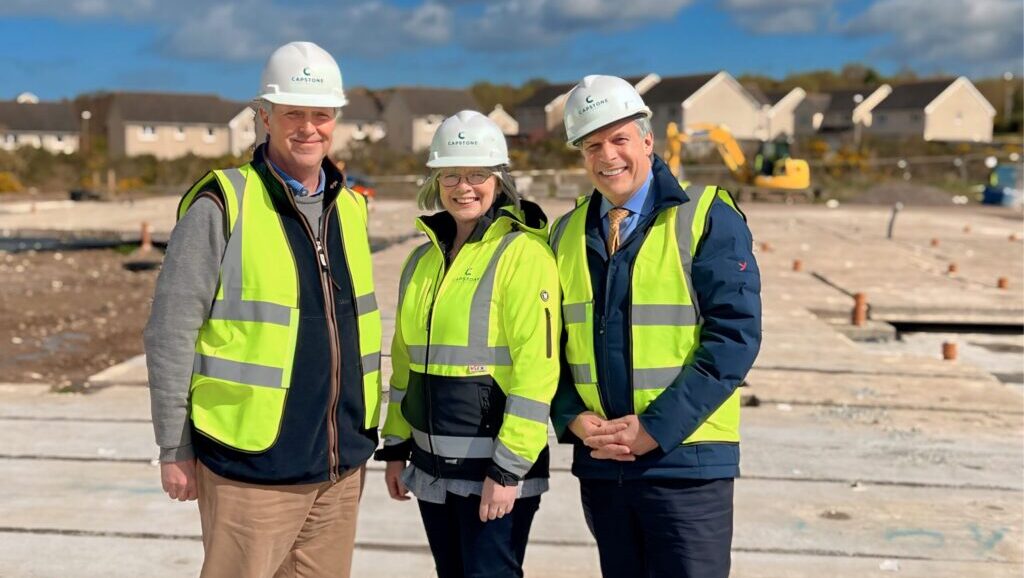Patients to have greater access to GP records through the NHS App with new data strategy
Millions of patients will benefit from faster, more innovative treatment and diagnosis following the publication of a new data strategy for health and social care, published by the Department of Health and Social Care.
The new data in health strategy – Data Saves Lives: Reshaping Health and Social Care with Data – published 13 June, focuses on seven principles to harness the data-driven power and innovation seen during the pandemic to drive transformation in health and care, creating a secure and privacy-preserving system which delivers for both patients and professionals.
The strategy sets out ambitious reforms for the health and care sector, transforming the way data is used to drive breakthroughs and efficiencies, helping to tackle the Covid-19 backlog and create a system fit for the future.
“We are embarking on a radical programme of reform that will make sure the NHS is set up to meet the challenges of 2048 – not 1948 when it was first established,” said Health and Social Care secretary Sajid Javid, launching the strategy at London Tech Week’s HealthTech Summit.
“This landmark document will look at how we can build on the momentum and apply the lessons to the challenges ahead of us, including tackling the Covid-19 backlog and making the reforms that are vital to the future of health and care. It shows how we will use the power of data to bring benefits to all parts of health and social care.”
The principles set out in the data strategy are:
- Improving trust in the health and care systems’ use of data
- Giving health and care professionals the information they need to provide the best care
- Improving data for adult social care
- Supporting local decision-makers with data
- Empowering researchers with the data they need to develop life-changing treatments and diagnostics
- Working with partners to develop innovations that improve health and care
- Developing the right technical infrastructure
Secure data environments will be made the default for NHS and adult social care organisations to provide access to de-identified data for research and give patients greater confidence than ever that their personal information is safe. This means data linked to an individual will never leave a secure server, and can only be used for agreed research purposes.
Following a £200 million investment, Trusted Research Environments (TREs) – a form of Secure Data Environments – will be established to better enable researchers to securely access linked NHS data while maintaining the highest levels of privacy and security.
This will enable the NHS to deliver life-saving treatments and diagnoses to patients faster through clinical trials and facilitate more diverse and inclusive research to tackle entrenched health inequalities, which will in turn allow the NHS to work through the Covid-19 backlog at a faster pace.
“We will make sure researchers and innovators are able to access data safely and efficiently,” continued Javid.
“In this country, we have some of the world’s best research institutes and universities, a powerhouse life sciences sector, and a thriving HealthTech industry.
“When this ingenuity meets the insight of health and care data, the opportunities are incredible.
The data strategy also contains key commitments to give patients greater access to and control over their data including simplifying the opt-out processes for data sharing and improving access to GP records in the NHS App by giving patients access to their latest health information by November 2022. Further improvements, including being able to more easily request historic information including diagnosis, blood test results and immunisations will be made available by December 2023.
The public will be consulted on a new “data pact” which will set out how the healthcare system will use patient data, and what the public has the right to expect.
The use of the NHS App has boomed throughout the pandemic. 28 million users can already access their data and services and statistics show in April alone, the NHS App enabled 1.7 million patients to order repeat prescriptions, 150,000 primary care appointments were managed and five million people viewed their GP records, saving vital clinician time.
With an ambition for the NHS App to be a one-stop-shop for health needs, the strategy commits to a target of 75% of the adult population to be registered to use the NHS App by March 2024.
“We will improve trust in data, which is the currency that data-driven technologies need to function,” said Javid.
“We will work with the public, including people working in health and care, to develop a new pact on data, which will set out how we will use health and care data, and what the public has the right to expect. This will include the ability to opt-out of sharing data. Because although we know that most people want their data to be used for good, we will make the opt-out system simpler and more transparent.
Better use of data is central to the government’s mission to integrate health and social care. Following a £150 million funding commitment to drive rapid digitisation in the adult social care sector, the strategy outlines how integrated care records will enable smoother transitions between NHS services and social care, including quicker discharge from hospital freeing up valuable space.
Currently, only 45% of social care providers use a digital social care record, and 23% of care home staff cannot access the internet consistently at work. The data strategy reinforces the ambition for at least 80% of social care providers to have a digitised care record in place by March 2024.
To support this, £25 million will be made available in 2022/23 to scale up the investment and implementation of digital social care technology across England with integrated care systems including adopting Digital Social Care Records (DSCR) to ensure data is captured at the point of care and can be shared between care settings.
Technologies like remote monitoring tools are already being used successfully to provide more targeted care. The government’s digital home care projects have used remote monitoring to support over 740,000 people with care at home, including care homes residents, improving their health outcomes and reducing the burden on the NHS, supporting clinicians as they focus on tackling the Covid-19.
“We must be open and honest about the fact that social care lags behind the NHS when it comes to digital transformation,” added Javid. “Our social care system is home to some of our most vulnerable in our society, and so the opportunities on offer are even greater.
“This strategy shows our determination to close the digital divide that exists between the NHS and social care.
“The data strategy will be followed by the publication of the digital health and care plan shortly which brings together the government’s aspirations for digital transformation for health and social care with an ambitious delivery plan.”



